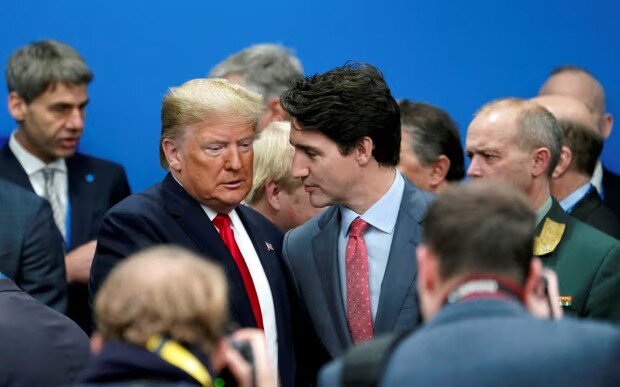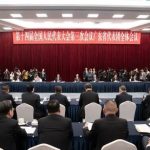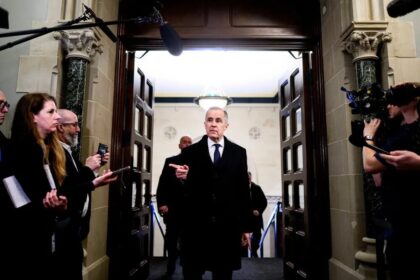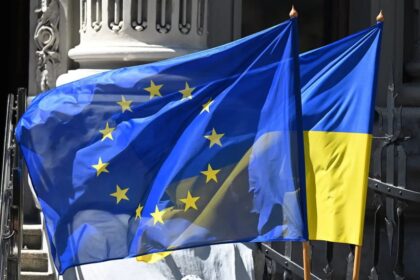Trump and Dream of Fifty -Fifth; Is it a serious threat?
The US media reported on how Trump’s talk about turning Canada into the US Fifth Willem has become a serious threat.
US President Donald Trump challenged the US -Canadian border treaty in an early February phone call, and told Canadian Prime Minister Justin Trudeau he was not satisfied with agreement on joint water resources.
After the US president imposed tariffs on Canada on Tuesday, the Canadian Prime Minister had an unusual comment that was largely overlooked in the event of events at that moment.
“The excuse he put forward today for these tariffs, namely the Fentanyl issue, is completely baseless, completely unfair and completely inaccurate,” Trudeau said in an interview with News media in Ottawa.
“What he wants is the complete collapse of the Canadian economy, as it makes it easier for us to join,” he said.
The New York Times writes with this introduction that this story shows how Trudeau is changed; He was joking about Trump in December, when he called him “governor” and Canada “Fifty -State”, until Trudeau publicly announced that Canada’s closest ally and neighbor was implementing a strategic to pressure it.
The February negotiations; From tariffs to borders
Trump and Trudeau spoke twice on February 5, once in the morning and again in the afternoon, within the framework of negotiations to prevent tariffs on Canada’s export.
But these calls in early February were not just about tariffs.
The details of the talks between the two leaders and the subsequent negotiations between senior US and Canadian officials were not fully reported before, and four people who were aware of the content were discussed with the New York Times on anonymity. Because of a sensitive subject, they did not want to reveal their identity.
Trump and Trudeau, a meeting at 1
In these calls, Trump presented a long list of his dissatisfaction with the trade relations between the two countries, including Canada’s support for the dairy industry, the problems that US banks have to operate in Canada, and Canadian consumer taxes that Trump considers unfairly because they make American goods more expensive.
He also raised a much more fundamental issue.
Trump told Trudeau that he does not believe in the credibility of the treaty that determines the border between the two countries and wants to revise the border. He did not explain further.
The border treaty that Trump refers to was set up in year 2 and the international border between Canada, which was then ruled by British, finalized the United States.
Trump also cited a review of the agreements on the division of lakes and rivers between the two countries, which had previously shown an interest in. Canadian officials took Trump’s statements seriously, especially as he had previously said he wanted to bring Canada to its knees.
At a news conference on January 7, Trump said in response to a New York Times reporter’s question about whether he intends to attach with the Canadian military force, he said his plan was to use “economic force”.
The White House did not respond to the request.
In the second call of February 7, Trudeau managed to take a one -month postponement for these tariffs. This week, US tariffs were implemented on Tuesday without extension. In contrast, Canada also imposed tariffs on US exports and pushed the two countries into a trade war. (On Thursday, Trump granted Canada a one -month suspension for most of these tariffs.)
Tension in US -Canada relations; Is Trump going to join?
There have been signs of the gap between Trump and Trudeau, as well as Trump’s offensive plans for Canada in the past few months.
The Canadian newspaper Toronto Star reports that Trump has referred to the Border Treaty in the year in February, and the media outlined other details of the conversation.
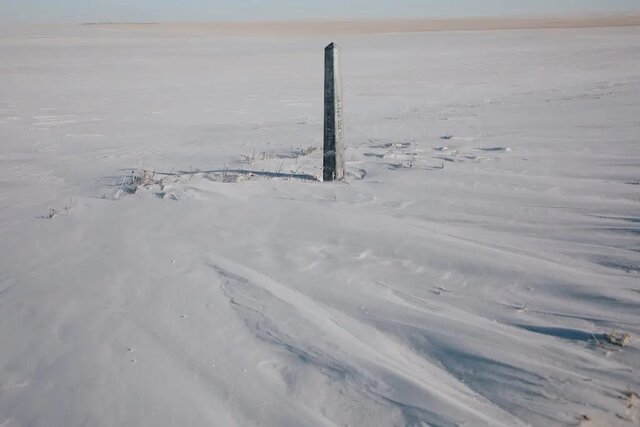
A small pyramid that shows the Canadian and American border in eastern Kots, Alberta
The Financial Times also reported that there are discussions at the White House about the elimination of Canada from a major intelligence alliance between the five countries, which has attributed this to one of Trump’s senior advisers.
Intensification of pressures
But Trump’s only talk about the border and water resources with Trudeau was not about Canada’s concern.
Repeated references to Canada as “Fifty -State” and Trudeau as the “governor” of the state, both in the Canadian government and on a broader level.
While Trump’s remarks could be the only rhetoric or tactic to pressure Canada on business or border security issues, the Canadian side has no idea.
And the understanding that the Trump administration is more seriously and aggressively looked at relations with Canada – a sign that was in line with the threats of accession – became more apparent in subsequent calls among senior officials in the two countries.
One of the calls was made between US Minister of Commerce Howard Latnik, which was not yet approved by the Senate, and Canadian Finance Minister Dominic Leblank.
The two have been regularly linked since early December at Trump’s residence in Florida during the Trudeau trip.
Latnick contacted Lablanche after the conversation of the leaders of the two countries on February 7 and gave a shocking message. According to several sources informed of the call, Latnik said Trump has realized that relations between the US and Canada are under a set of agreements and treaties that are not difficult to abandon.
Latnick said Trump is exactly the same.
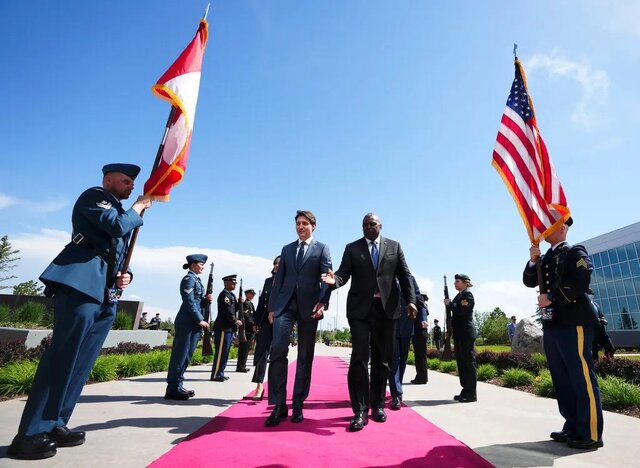
Visit Trudeau in Year 2 of North American Aerospace Defense Command in Colorado
He wanted to remove Canada from the Fayo -Eiz Information Group (five eyes), including Britain, Australia and New Zealand. He also intended to cancel agreements about the big lakes between the two countries, which specified the division and management of the lakes of Superior, Horon, Erie and Ontario. In addition, he was investigating military cooperation between the two countries, especially the North American Aerospace Defense Command (Norad).
A Latnik spokesman did not respond to the request. A spokesman for Lablank also refused to comment.
Canadian concern for changing US policies
In subsequent correspondence between senior Canadian officials and Trump’s advisers, these issues have been raised many times, making the Canadian government take them seriously.
According to four sources that spoke to the New York Times, the only one who has partially reduced concerns was US Secretary of State Marco Rubio.
Rubio has avoided threatening and recently rejected the idea that the US intends to abolish military cooperation. But Canadian politicians are deeply concerned about any faction as well as the Canadian community.
According to the New York Times, Canadian officials do not see Trump’s threats as hollow; Rather, they regard it as a new fact in relations with America.
“Your Foreign Minister yesterday described the events as a psychological play,” a reporter asked Trudo at a news conference. How do you describe it? “
Trudeau replied with a bitter tone, “That was for Thursday!”
The end of the message
(Tagstotranslate) Canada (T) Justin Trudeau (T) US (T) Donald Trump
RCO NEWS
RCO




